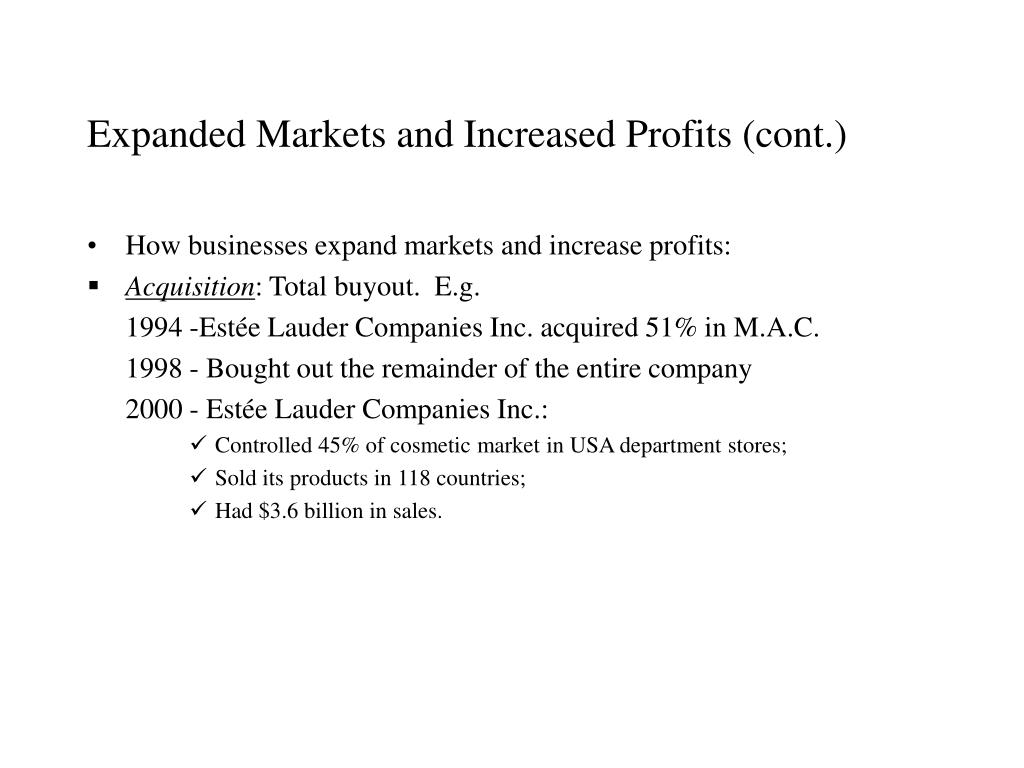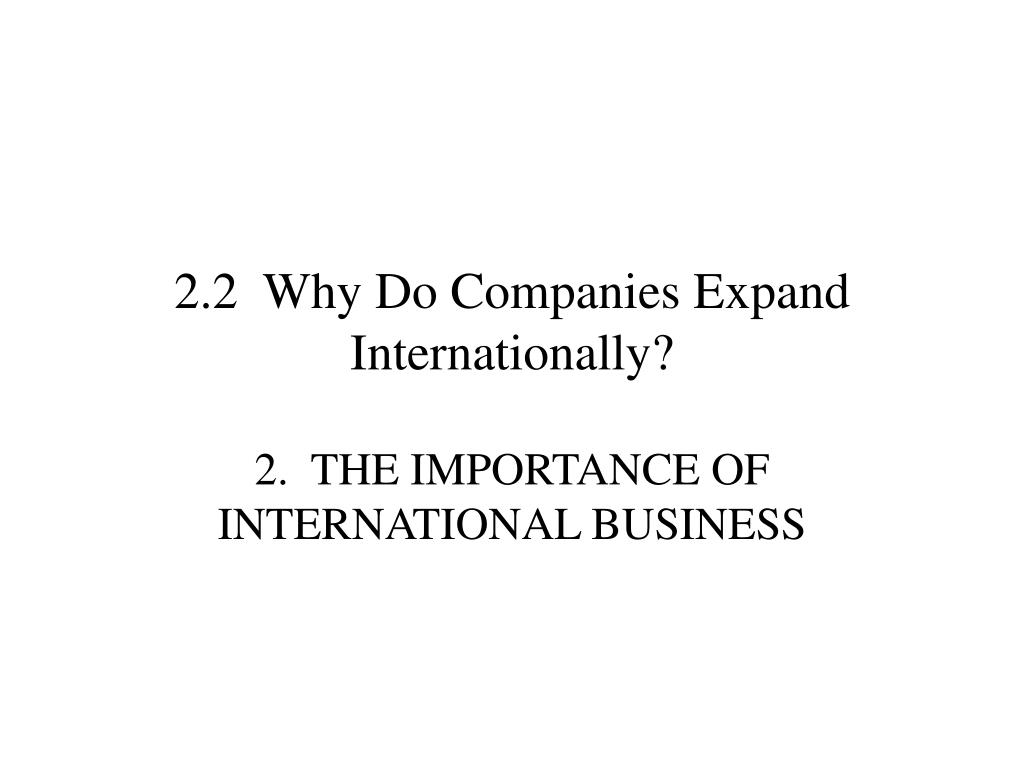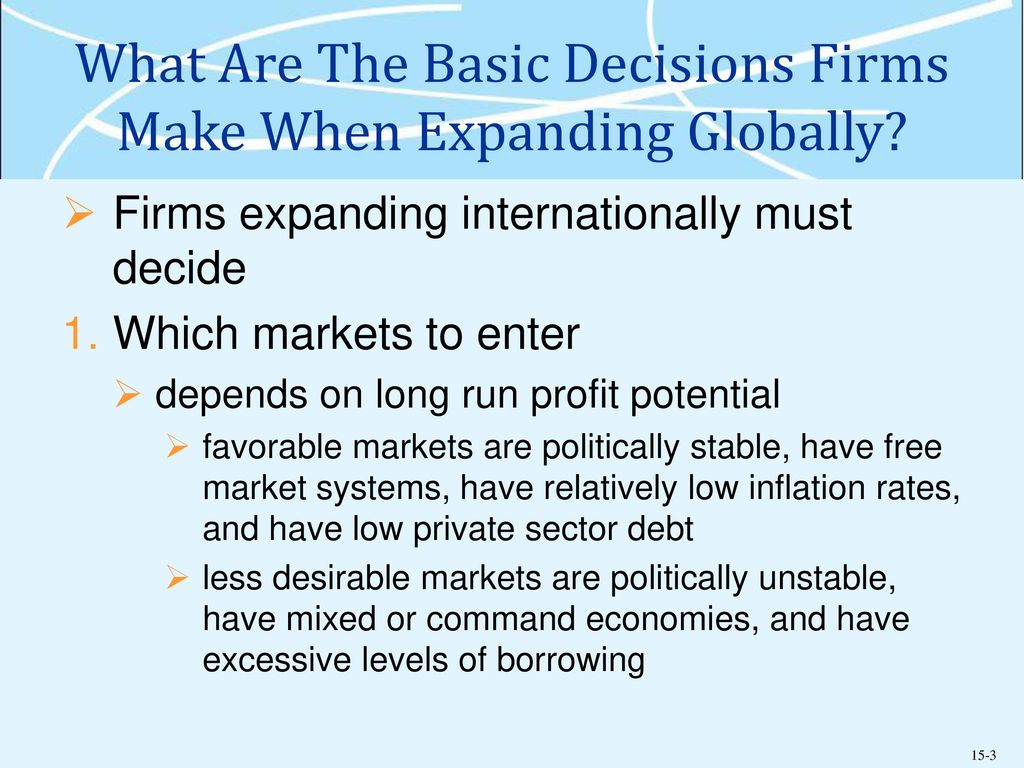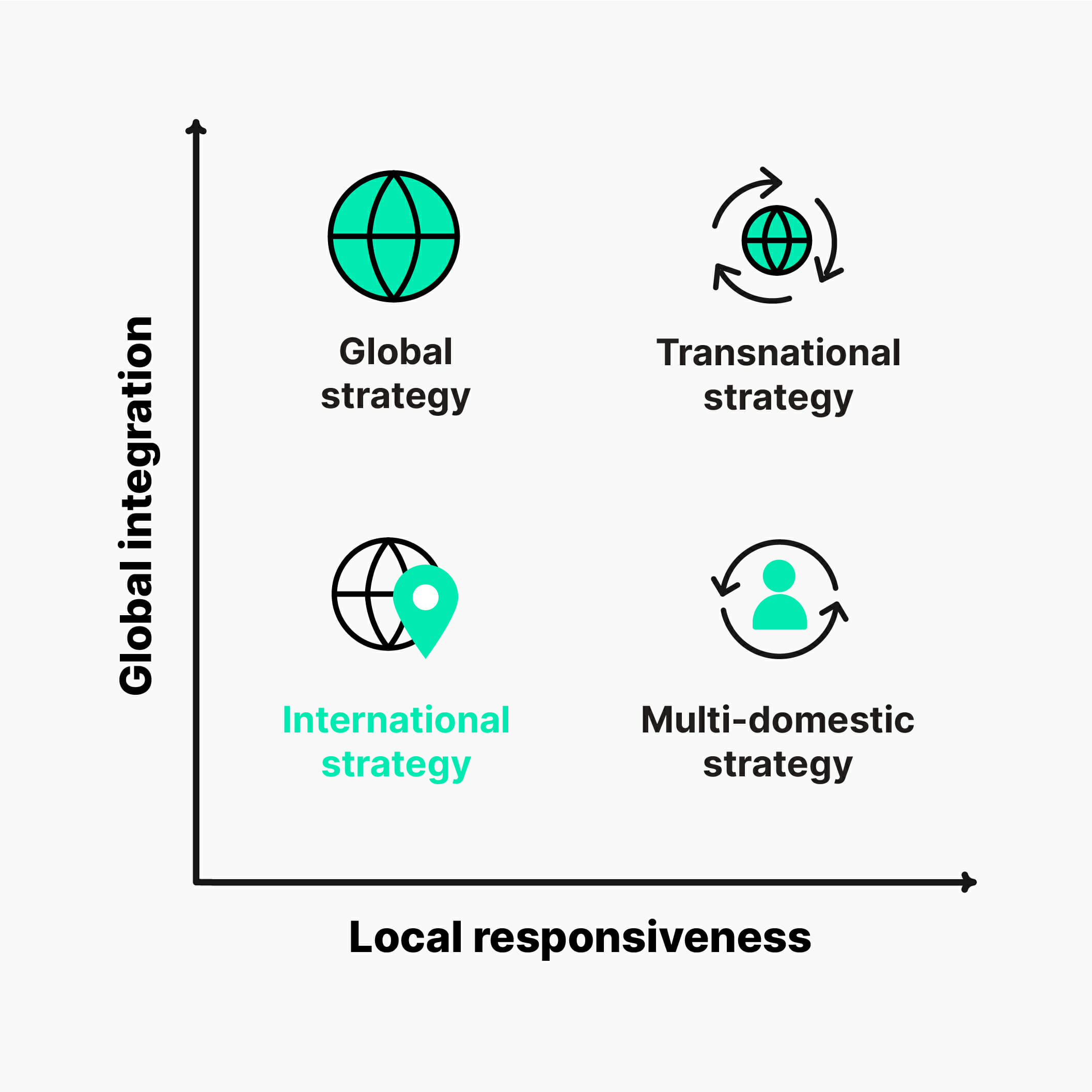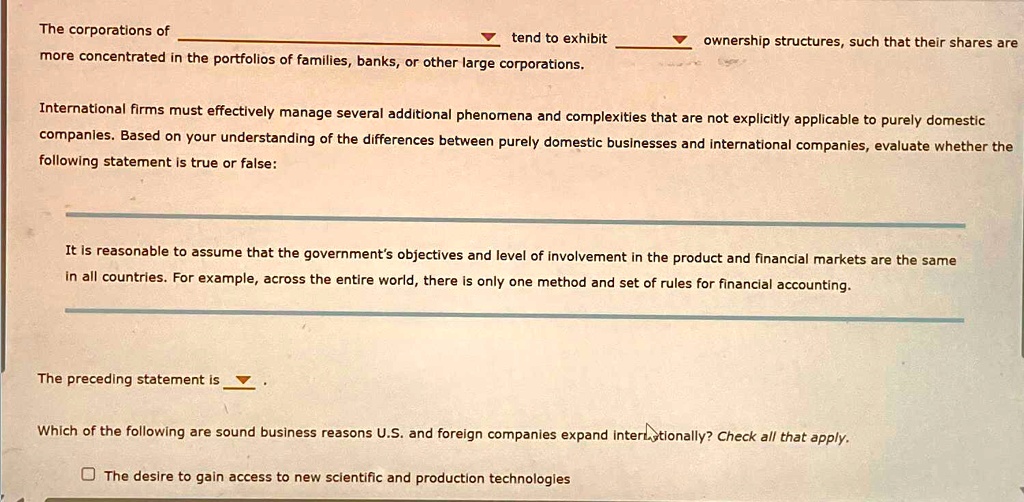Which Of The Following Are Reasons Firms Expand Internationally

In an increasingly interconnected world, the siren call of international expansion is proving irresistible for businesses of all sizes. Driven by the promise of new markets and greater efficiency, companies are venturing beyond their domestic borders at an unprecedented rate.
But what exactly fuels this global gold rush? Understanding the key drivers behind international expansion is crucial for businesses contemplating their own global journey and for policymakers seeking to shape the landscape of international trade and investment.
The Lure of New Markets: Untapped Potential and Growth Opportunities
The most prominent reason firms expand internationally is access to new markets. Domestic markets can become saturated, limiting growth potential and leading companies to seek fresh pastures.
Emerging economies, with their burgeoning middle classes and rising disposable incomes, offer particularly attractive opportunities for businesses seeking to increase their sales and market share.
According to the World Bank, developing countries are projected to experience significantly higher economic growth rates than developed nations in the coming years, making them a key target for international expansion.
Cost Advantages: Seeking Efficiency and Lower Production Costs
Beyond market expansion, companies are often drawn to international expansion by the potential for cost advantages. This involves leveraging lower labor costs in certain countries to reduce production expenses.
Relocating manufacturing facilities to countries with less stringent environmental regulations can also offer cost savings, though this practice is increasingly scrutinized for its ethical implications.
Another vital cost advantage could be the accessibility of natural resources that is lacking in their domestic locations. Firms will tap into it to minimize costs of operations.
Resource Acquisition: Securing Vital Inputs and Expertise
Securing access to essential resources is another significant driver of international expansion. Companies might establish operations in countries rich in raw materials, such as minerals, energy sources, or agricultural products.
Moreover, expansion can provide access to specialized skills and knowledge. Silicon Valley tech companies, for example, often set up research and development centers in countries with a strong pool of engineering talent, such as India and China.
Acquiring intellectual property and technological know-how are also key reasons for firms to extend their presence internationally.
Competitive Pressures: Responding to Global Rivals
The competitive landscape is increasingly global, forcing firms to expand internationally simply to remain competitive. If a company's main competitors are expanding overseas, it may need to follow suit to maintain its market position and avoid being outmaneuvered.
This phenomenon is particularly evident in industries with high levels of global competition, such as the automotive and electronics sectors.
Ignoring international expansion can mean ceding market share to more agile and globally-minded competitors, ultimately leading to a decline in profitability and long-term sustainability. Competitive pressure is a reactive, but powerful motivator.
Technological Advancements: Facilitating Global Operations
Advances in technology have significantly lowered the barriers to international expansion. The internet and e-commerce platforms have made it easier for businesses to reach customers in distant markets without establishing a physical presence.
Improved communication technologies, such as video conferencing and cloud-based collaboration tools, facilitate seamless communication and coordination across international teams.
This technological revolution has leveled the playing field, allowing smaller businesses to compete on a global scale. The result is that international expansion is now within reach of more companies than ever before.
Government Incentives and Policies: Encouraging Foreign Investment
Governments often play a significant role in encouraging international expansion through various incentives and policies. Tax breaks, subsidies, and streamlined regulatory processes can make a country more attractive to foreign investors.
Trade agreements, such as the Trans-Pacific Partnership (TPP) and the Comprehensive Economic and Trade Agreement (CETA), can reduce trade barriers and facilitate cross-border investment.
Investment promotion agencies actively market their countries to foreign investors, highlighting their competitive advantages and providing support for businesses looking to expand their operations.
Risk Diversification: Reducing Reliance on Domestic Markets
Expanding internationally can provide risk diversification benefits. By operating in multiple countries, companies can reduce their reliance on a single market and mitigate the impact of economic downturns or political instability in any one location.
A global presence allows companies to spread their risk across different regions and industries, making them more resilient to unforeseen events.
This risk diversification strategy is particularly important for companies operating in volatile or unpredictable industries. The logic of diversifying risks is more robust if a firm spreads to geographically diverse markets.
The Path Forward: Navigating the Complexities of Globalization
The decision to expand internationally is a complex one, with a multitude of factors to consider. From assessing market opportunities and navigating cultural differences to managing regulatory hurdles and mitigating political risks, businesses must carefully weigh the potential benefits against the challenges.
However, for companies that are well-prepared and strategically focused, international expansion can unlock significant growth opportunities and create a sustainable competitive advantage.
As globalization continues to reshape the world economy, the ability to operate effectively across borders will become an increasingly critical success factor for businesses of all sizes. Internationalization is no longer a choice but, increasingly, an imperative.

